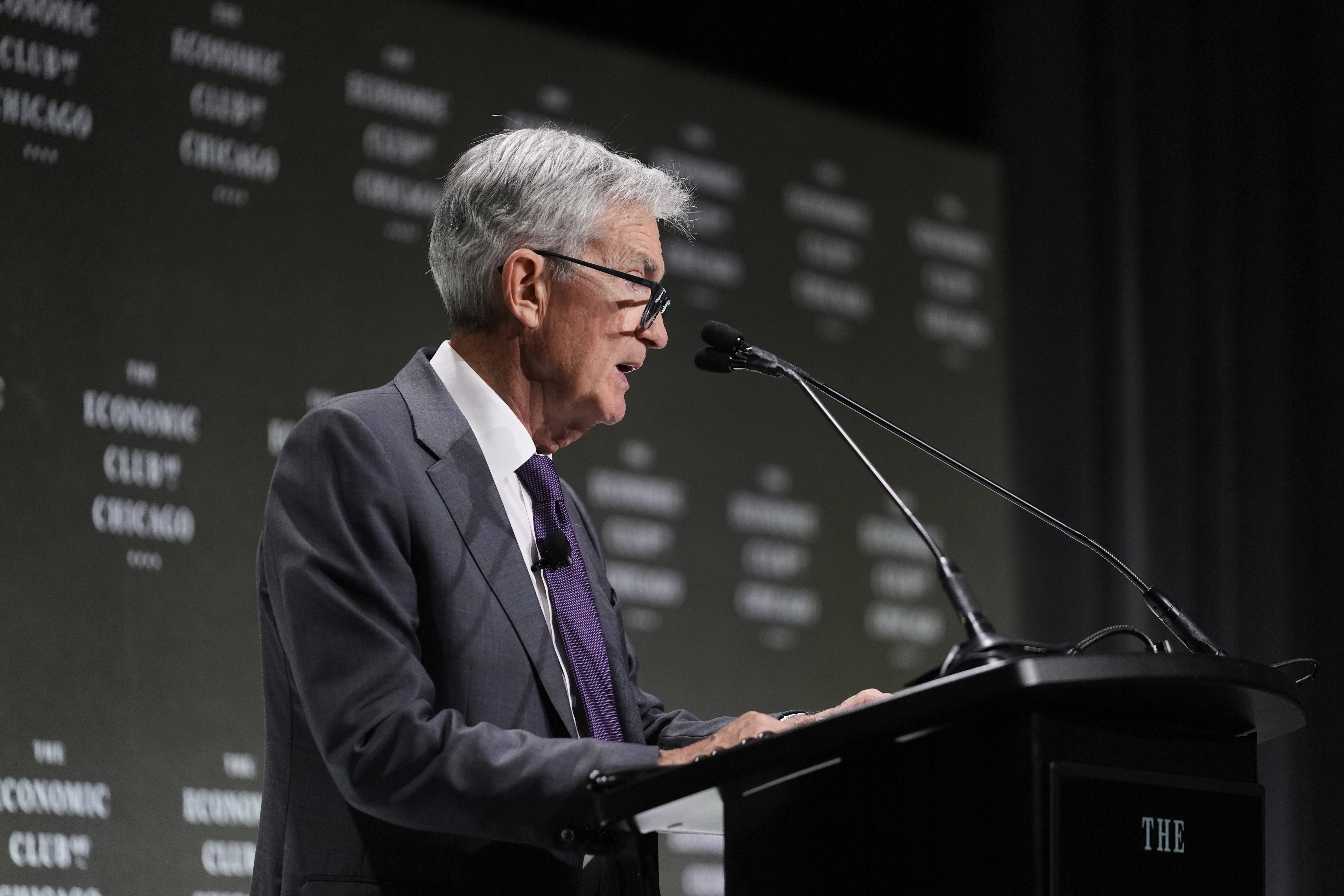
WASHINGTON - US Federal Reserve Chairman Jerome Powell warned on Wednesday that the administration's tariff hikes are likely to cause a short-term rise in inflation, while supply chain disruptions could lead to more persistent pressure.
"The level of the tariff increases announced so far is significantly larger than anticipated. The same is likely to be true of the economic effects, which will include higher inflation and slower growth," Powell told an event hosted by the Economic Club of Chicago.
"Both survey -- and market -- based measures of near-term inflation expectations have moved up significantly, with survey participants pointing to tariffs," said Powell.
During a Q&A session following his remarks, Powell said that the administration is implementing significant policy changes, and "particularly trade now is the focus, and the effects of that are likely to move us away from our goals."
"So unemployment is likely to go up as the economy slows in all likelihood, and inflation is likely to go up as tariffs find their way. And some part of those tariffs come to be paid by the public. So that's the strong likelihood," he said.
ALSO READ: The folly of trade wars: How tariffs torpedo global prosperity
Powell noted that the Fed may face the challenging scenario where its dual mandate objectives of price stability and maximum employment "are in tension."
The Fed chair emphasized that supply chain disruptions -- which often require extended periods to resolve -- could transform what might otherwise be a one-time inflationary shock into more persistent pressures, a scenario of particular concern to the central bank.
"In this case, you can look at the car companies, which their supply chains are likely to be on track to be disrupted significantly. And you would worry that that process will take some years, and that the inflationary process might be extended," Powell said, adding that "all of this is highly uncertain."
Powell further noted that these policy shifts represent fundamental departures from long-standing US policy frameworks, leaving the Fed without modern precedents for guidance.
"These are very fundamental changes in long-held, in some cases, policies in the United States, and there's not any real experience," he said.
ALSO READ: Fed official warns against recession risk
He noted that even the Smoot-Hawley Tariff Act enacted in 1930 did not impose tariffs at the current elevated levels.
The Fed chair said that the central bank would continue to monitor the actual impacts of the administration's tariff measures and other economic policies before making any interest rate adjustments.
"Monetary policymakers face a difficult balancing act," Karen Dynan, a nonresident senior fellow at the Peterson Institute for International Economics, said Tuesday as the think tank released its semiannual Global Economic Prospects.
"The Federal Reserve is expected to hold interest rates steady through year-end, waiting for clearer signs that inflation is easing before making cuts," said Dynan.


